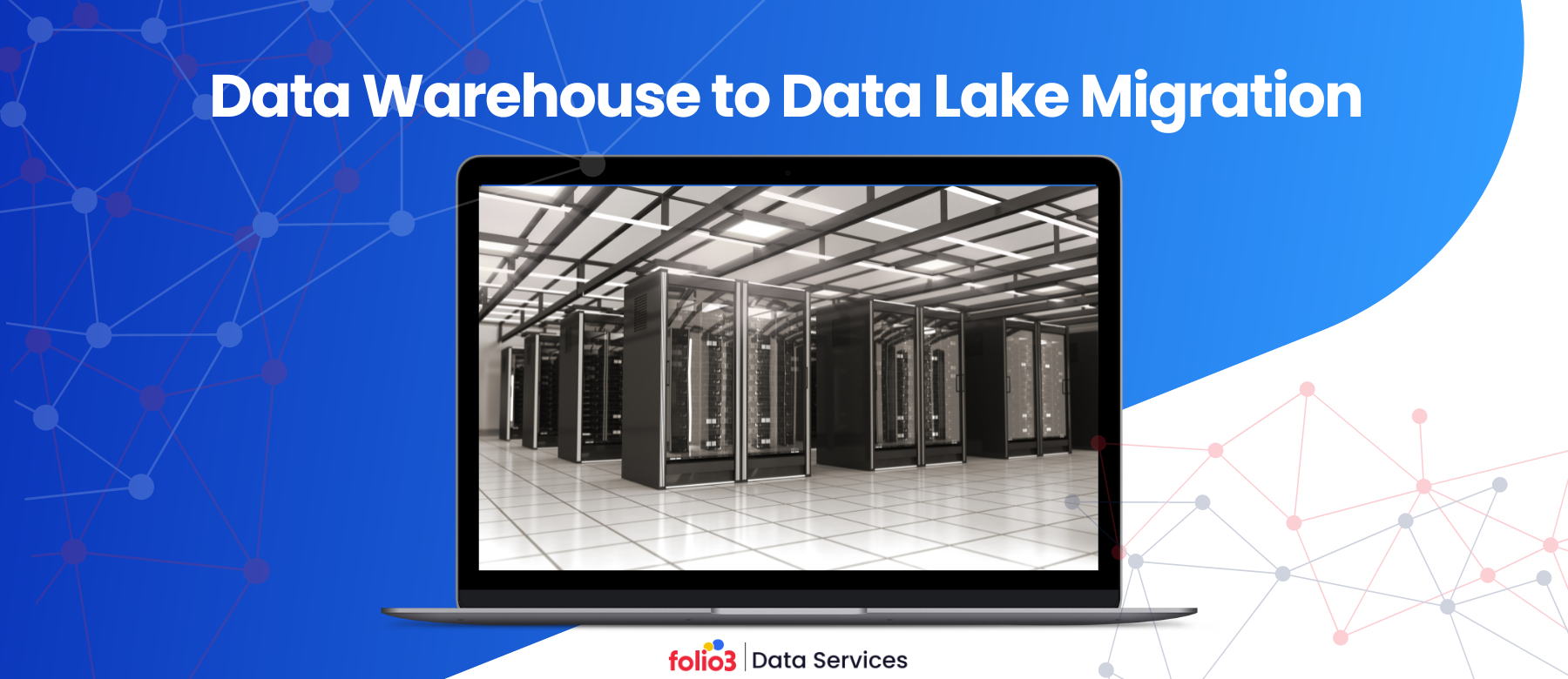In our increasingly digital world, data has become the lifeblood of businesses, governments, and individuals. As data volumes explode and cross-border data flows become more prevalent, data residency has emerged as a critical consideration.
Data Residency is about where your data calls home. It’s the physical location where your organization’s data is stored and processed, and it plays a crucial role in how that data is governed and protected.
This seemingly simple concept carries significant implications for organizations, from legal and compliance perspectives to operational efficiency and security.
This guide will explore data residency, delving into its definition, implications, and the challenges organizations face in managing data across borders.
What is Data Residency?
Data residency refers to the physical location of an organization’s data. This can encompass servers, databases, or data centers. Essentially, it’s the geographic address of your data.
For instance, if a company’s data is stored on servers within its own data center in New York City, the data residency is in New York City. Similarly, if a company uses a cloud service provider whose data centers are located in Frankfurt, Germany, the data residency for that data is Germany.
Data residency is becoming increasingly important due to the growing number of data privacy regulations and laws worldwide. These laws often dictate where data can be stored, processed, and transferred, imposing specific requirements on organizations handling personal or sensitive information.
What Are Data Residency Requirements?
Data residency requirements are specific regulations or mandates imposed by governments or regulatory bodies that dictate where certain data types must be stored, processed, or handled. These requirements are designed to protect citizens’ privacy, national security, and economic interests.
Critical characteristics of data residency requirements
- Geographic specificity: Data must reside within a particular country, state, or region.
- Data types: This is often limited to specific data types, such as personal data, financial information, or healthcare records.
- Processing restrictions: This may include limitations on how data can be processed or analyzed.
- Transfer limitations: Restrictions on transferring data to other jurisdictions.
Examples of data residency requirements
- The European Union’s General Data Protection Regulation (GDPR): While not explicitly requiring data localization, the GDPR imposes strict data protection rules that often necessitate data residency considerations.
- China’s Cybersecurity Law: Requires critical information infrastructure operators to store personal data of Chinese residents within the country’s borders.
- India’s Data Protection Bill: Proposes data localization requirements for sensitive personal data.
What is Data Residency in Azure?
Data residency in Azure refers to the physical location where your data is stored and processed within Microsoft’s cloud infrastructure. Azure offers high control over data placement, allowing you to specify the region where your data resides.
Key points about data residency in Azure
- Regional Deployment: Most Azure services are deployed regionally, enabling you to select the specific geographic location for your data.
- Data Replication: Microsoft may replicate data to other regions for redundancy and disaster recovery purposes. However, it does not store or process customer data outside the selected region unless explicitly documented.
- Global Accessibility: You can access and manage your data from anywhere globally, regardless of its location.
- Sovereign Landing Zones (SLZs): For customers with stringent data residency requirements, Azure offers SLZs to restrict service and region usage, providing additional control over data placement.
If you choose to store your data in the Azure West US region, your data will primarily reside within data centers in that region. While Microsoft might replicate the data to the other areas for backup, the primary processing and storage will occur within the West US region.
Importance of Data Residency
Data residency is critical for businesses operating in today’s globalized digital landscape. Its importance stems from several key factors:
Compliance and Risk Mitigation
- Adherence to Regulations: Data residency laws vary across jurisdictions. Organizations can avoid hefty fines and legal repercussions by ensuring data is stored and processed within designated geographic boundaries.
- Data Protection: Localizing data can enhance security measures as it falls under the jurisdiction of specific data protection laws, offering an extra layer of protection.
- Risk Reduction: Limiting data transfer reduces the potential for data breaches and unauthorized access.
Customer Trust and Confidence
- Data Privacy: Demonstrating compliance with local data residency laws builds trust with customers, especially in sectors like healthcare and finance.
- Data Sovereignty: Customers are more likely to share personal information if they know their home country’s laws protect it.
Operational Efficiency and Cost
- Performance Optimization: Storing data closer to users can improve application performance and reduce latency.
- Cost Savings: Data transfer costs can be reduced by storing data locally, especially for large datasets.
- Disaster Recovery: Data in different regions can enhance disaster recovery plans.
Geopolitical Considerations
- National Security: Some countries have stringent data residency laws to protect critical infrastructure and national security.
- Economic Benefits: Data localization can stimulate local IT industries and job creation.
Data Residency vs Data Sovereignty vs Data Localization
Understanding the distinctions between data residency, data sovereignty, and data localization is crucial for businesses, policymakers, and legal professionals.
While these terms are frequently used as if they were synonymous, they actually carry different meanings and implications:
Data Residency
- Definition: Data residency refers to the physical location where data is stored and processed. This term emphasizes the geographic location of data storage infrastructure, such as data centers and cloud storage facilities.
- Regulatory Impact: Organizations must be aware of the regulations and policies of the country where the data is stored. Compliance is required with local data protection laws.
- Focus: Geographic location.
- Example: If a company’s data is stored on servers located in a data center in Frankfurt, Germany, then the data residency is Frankfurt, Germany. The physical location of the servers determines the data residency.
Data Sovereignty
- Definition: Data sovereignty pertains to the legal rights and jurisdictional control over data. It involves the laws and regulations of the country where the data is stored and processed, dictating how the data is collected, handled, and transferred.
- Legal Implications: Data sovereignty focuses on the governance and legal jurisdiction that applies to data. Different countries have varying privacy and security laws that apply to data stored within their borders.
- Focus: Legal jurisdiction and control.
- Example: A country like Canada may enact laws that govern how data within its borders must be managed. For instance, Canadian laws may stipulate that data belonging to Canadian citizens must be protected under specific privacy regulations, even if the data is stored in another country.
Data Localization
- Definition: Data localization is a specific type of data residency requirement that mandates data be stored and processed within a particular geographic boundary. It is often driven by regulatory requirements that aim to confine data within a country’s borders for security, privacy, or economic reasons.
- Scope: Data localization mandates that personal data is created, processed, and stored within the same country. This policy is more stringent than data residency or sovereignty.
- Focus: Data confinement within geographic boundaries.
- Example: India might have regulations requiring all financial data of its citizens to be stored on servers physically located within the country. This means that companies operating in India must ensure that financial data does not leave Indian territory.
Data Residency Challenges
Data residency, the requirement for data to be stored within specific geographical boundaries, poses significant challenges for businesses due to ever-evolving regulations.
The complexity of implementing data residency requirements often necessitates the expertise of data engineering services. These services can help businesses overhaul their internal policies, optimize storage solutions, and ensure that data residency compliance is seamlessly integrated into their operations without disrupting regular business activities.
To ensure compliance, companies must continuously review and update their internal policies. Challenges include:
1. Collaboration Challenges
- Complex Requirements: The intricate nature of data residency laws often leaves companies worried about missing critical aspects, leading to potential penalties.
- Third-Party Providers: Many businesses opt to partner with third-party cloud service providers for compliance, while others hesitate to relinquish control entirely to these providers.
- Survey Insights: According to a CSCC survey, many business owners are reluctant to collaborate on data protection, fearing risks associated with unauthorized access. However, partnering with reliable data residency service providers can safeguard sensitive customer information effectively.
2. Implementation Challenges
- Policy Overhauls: Compliance often necessitates frequent updates or complete overhauls of internal policies, affecting storage, access control, backup systems, networking infrastructure, and data transition processes.
- Increased Costs: Implementing these changes can significantly elevate operational costs, as businesses must invest in new equipment and technology.
- Technical Expertise: The shortage and high cost of specialized IT professionals can hinder the implementation of data residency laws. Some countries’ regulations require specific technical qualifications, which may necessitate layoffs of existing staff who do not meet these criteria.
- Operational Disruption: SaaS companies, in particular, may find the implementation process labor-intensive and disruptive to their regular operations.
3. Potential Pitfalls
- Economic and Political Factors: Data residency laws are often influenced by the economic and political climate of a country. Business owners protesting these laws may face backlash and damage their reputation among local stakeholders.
- Navigating Legislation: It is crucial for businesses to address issues tactfully with lawmakers, highlighting industry-specific challenges without directly opposing the regulations.
- Client Communication: Companies must also educate clients about changes resulting from data residency compliance, especially when these changes impact the clients’ operations.
Data Residency Risks
As global companies navigate their operations, they often encounter significant risks related to data residency. Understanding these risks is crucial for maintaining compliance and protecting sensitive information. Data residency risk include:
Legal Penalties
Violation of Laws: Companies unaware of specific data residency laws by country may inadvertently break regulations, leading to severe fines and legal consequences.
Unauthorized Access
Sensitive Information Exposure: Inadequate compliance can result in unauthorized third parties accessing sensitive company and customer information, compromising data integrity.
Espionage
Foreign Government or Organization: There’s a risk of espionage where foreign entities exploit non-compliance to gain access to proprietary information.
Client Loss
Data Mismanagement Concerns: Customers may switch to competitors due to fears of data mishandling, leading to loss of business and revenue.
Project Limitations
Compliance Requirements: Inability to meet data residency requirements can prevent companies from undertaking certain projects, limiting business opportunities.
Cyberattacks
Local Data Centers: Data centers with lower security standards are more vulnerable to cyberattacks, risking data loss or breach.
Business Growth Delays
Non-compliance Concerns: Expanding into foreign markets can be delayed due to apprehensions about meeting local data residency regulations.
Customer Distrust
Past Breaches: A history of data breaches can erode trust among existing and potential customers, impacting brand reputation and customer loyalty.
Benefits of Implementing Data Residency
When you implement data residency strategy, you will experience the following benefits:
Compliance with Regulations
The foremost benefit of implementing data residency is ensuring compliance with local data protection and privacy laws, such as the General Data Protection Regulation (GDPR) in the European Union.
By adhering to these regulations, organizations can avoid hefty fines and legal repercussions, ensuring their operations are lawful and ethical.
Enhanced Security
Storing data in specific locations allows organizations to leverage local security measures, protocols, and standards, thus enhancing the overall security of their data.
Localized data centers can implement region-specific security practices that are better suited to the threats and requirements of that particular area.
Built Trust
Adhering to local privacy laws and regulations fosters greater trust among customers. When customers know that their data is handled according to stringent local regulations, they are more likely to share their information and engage with the company’s services, boosting customer loyalty and satisfaction.
Avoidance of Legal Issues
Compliance with local data residency laws helps organizations avoid potential legal disputes, fines, and reputational damage. Adhering to these laws minimizes the risk of breaches and legal challenges, ensuring smooth and lawful business operations.
Better Control
Implementing data residency provides organizations with better control over where their data is stored. This control facilitates easier access, management, and protection of data, allowing organizations to implement precise data governance policies and practices.
Greater Access Speed
Data residency can significantly impact access speed. When data is stored closer to the users or systems that require it, latency is reduced, leading to improved performance and faster data retrieval. This is particularly beneficial for businesses that rely on real-time data processing and analytics.
Disaster Recovery
Implementing data residency in multiple regions aids in disaster recovery efforts. By storing copies of data in different locations, organizations can ensure data redundancy and quick recovery in the event of a regional disaster, thereby minimizing downtime and data loss.
Trade Advantages
Complying with data residency regulations can provide trade advantages, such as avoiding sanctions and benefiting from certain trade agreements. Organizations that adhere to these regulations are often viewed more favorably by regulatory bodies, potentially opening up new business opportunities and markets.
Data Residency Exceptions
Data residency requirements are designed to keep data within specific geographical boundaries, but there are several exceptions to these rules. These exceptions vary based on specific laws or regulations but generally include the following:
Consent
One of the most common exceptions is obtaining explicit consent from the data subject. For instance, under the GDPR, data can be transferred abroad if the data subject has given explicit consent after being fully informed of the risks associated with the transfer.
Necessity
Certain regulations permit data transfers if it is necessary for the performance of a contract between the data subject and the data controller. This exception also applies if the transfer is necessary for pre-contractual measures taken at the data subject’s request.
International Agreements
Data can be transferred between countries under specific international agreements that ensure adequate data protection.
For example, the EU-US Privacy Shield was a framework that allowed data transfers between the European Union and the United States, provided certain data protection standards were met.
Although the Privacy Shield has been invalidated, mechanisms such as Standard Contractual Clauses (SCCs) are still in use. These agreements establish legal safeguards to ensure that data transferred internationally is protected to the same standard as within the originating country.
Public Interest
Some laws allow data transfers if they are necessary for reasons of substantial public interest. This may include situations where the data transfer is critical for public health, safety, or other significant public interests.
The specific criteria and conditions for such exceptions can vary depending on the jurisdiction and the nature of the data involved.
Legal Claims
Data may be transferred across borders if it is required to establish, exercise, or defend legal claims. This exception is particularly relevant in legal contexts where evidence or information stored in one jurisdiction is needed to pursue or defend against a legal action in another.
Relevant Codes of Conducts and Certifications
Data transfers may be permitted if data controllers or processors adhere to approved codes of conduct or certification mechanisms that guarantee adequate protection. For example, adherence to specific industry standards or certifications may facilitate international data transfers by demonstrating that adequate protection measures are in place.
Conclusion
Navigating data residency is crucial for modern businesses dealing with international data flows. Understanding and implementing data residency ensures compliance with local regulations, enhances data security, and builds customer trust.
While challenges such as collaboration, implementation, and risks are significant, the benefits—including improved control, performance, and disaster recovery—outweigh these hurdles.
To effectively manage data residency and address associated challenges, consider leveraging expert services like Folio3 Data Services. Their comprehensive solutions can help streamline compliance, enhance data security, and optimize performance, allowing you to focus on growing your business while staying ahead in the global digital landscape.





